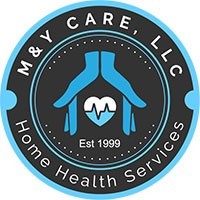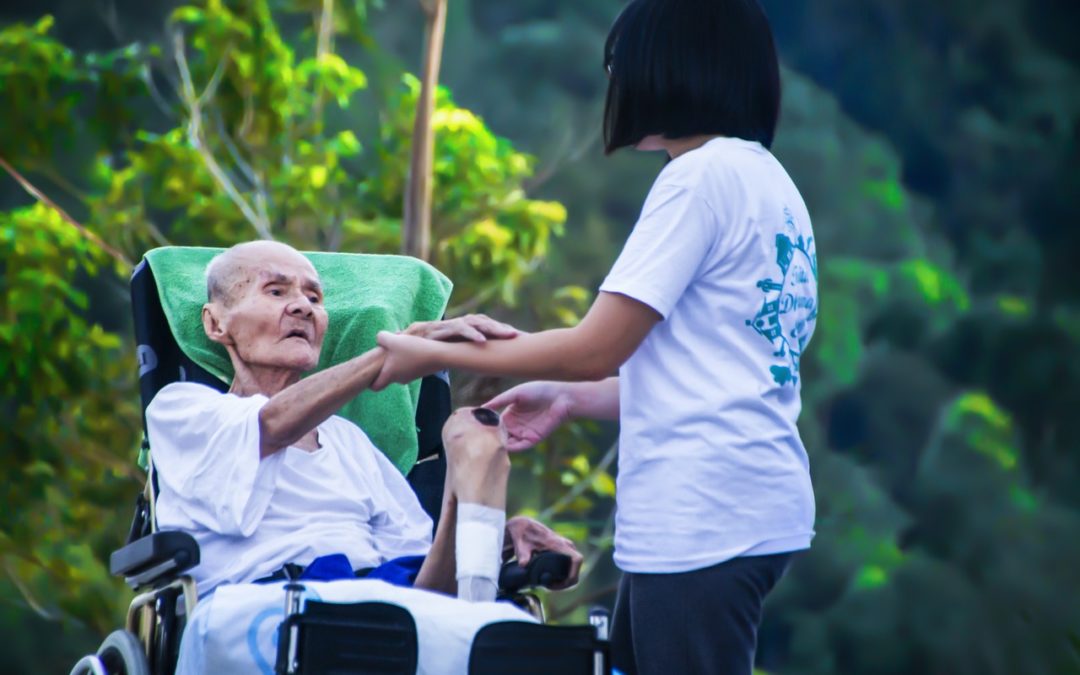Providers struggle with workforce shortages, search for protective gear, unexpected costs and uncertain revenues.
Like hospitals and nursing homes, home health care involves significant levels of hands-on assistance for some of New Jersey’s most vulnerable residents, whether it’s helping an elderly individual bathe or adjusting the breathing tube on a 6-month-old infant.
And like the challenges other health care providers face during this coronavirus epidemic, home care agencies are now struggling to balance the sudden need for more protective gear, workforce shortages, unexpected costs and uncertain revenues. But in caring for people in private homes — instead of institutions — many of these struggles remain out of public view.
“This is very intimate (care) — you can’t do telehealth,” said Todd Thiede, CFO of Preferred Home Health, a multistate agency that provides private nursing care for severely disabled individuals in New Jersey. “It’s not possible for our nurses” to practice social distancing, he said. “We have to be face to face, hands-on.”
Preferred is among the roughly 1,200 agencies licensed in New Jersey to offer certain medical care, assistance with bathing, dressing and daily needs, physical therapy, social work or hospice services in private homes; some companies dispatch home health aides, licensed individuals who assist with daily nonmedical needs, while others focus on private duty nursing, which requires licensed nursing staff. Some agencies are paid through Medicaid, which covers disabled individuals, while others collect from Medicare, which funds some home health services for elderly individuals who are recovering from hospitalization; most also take private insurance.
Freeing up hospital beds
Home care plays a particularly important role during the coronavirus pandemic by helping those elderly individuals and others who have been hospitalized to recover at home — potentially freeing up a bed and reducing the potential for that person to be readmitted if they develop an infection in a wound, for example, or their illness reemerges. Private nurses also are essential to keeping severely disabled children and teens from developing complications that require hospitalization.
“We feel a sense of commitment and pride to be part of the solution,” said Dr. Steven Landers, a geriatric medicine specialist who heads the VNA Health Group, which works in New Jersey, Ohio and Florida.
New Jersey is currently seeking to maximize hospital bed capacity in response to the COVID-19 crisis, reopening or repurposing space at existing acute-care facilities and setting up three regional field hospitals, two of which are now accepting patients. More than 71,000 residents are now diagnosed with the virus, including nearly 3,200 who have died.
Staffing shortages, low pay, health concerns
The struggle for nurses, respiratory therapists and other clinical staff has become a chronic problem for hospitals and long-term care facilities in the Garden State, prompting the state to draft volunteers, contract with staffing agencies and enlist retired professionals. Some home health agencies — part of an industry historically plagued by workforce shortages — are also growing concerned.
While private nurses — who care for approximately 5,000 individuals in New Jersey — may be paid more than other home care service providers, the home health aides who assist with daily needs earn up to $25,000 annually, on average, according to a recent study by the Rutgers Center for Women and Work. The workforce of 36,000 is almost entirely female; half are immigrants and more than two-thirds are nonwhite.
“With all of the attention rightly focused on our incredible doctors, nurses, and first responders, it’s easy to forget about the thousands of home health aides who are caring for vulnerable New Jerseyans every day,” said Debra Lancaster, the center’s executive director. “We’ve seen a growing demand for their services over the last 20 years. Yet, they remain among the lowest-paid workers in our state.”
These demographics mean home health aides are highly likely to also be caring for children or elderly relatives at home — a task that has grown more complicated as schools and senior center programs have closed. And they are disproportionately vulnerable to COVID-19 infection and death, which impacts minorities at higher rates. As a result, agencies have seen staff numbers decline in recent weeks.
The staffing situation “was already fragile, but this has pushed it to the brink,” Thiede said. And while some health care providers can train a volunteer or visiting nurse quickly — and state officials have waived certain requirements to speed the process — that’s more difficult when the care involves children who are extremely medically compromised and likely nonverbal, he explained.
“The retired nurse from Florida doesn’t really help us much,” Thiede added. “There’s no place where I can put you tomorrow.”
‘A vulnerable population’
Nancy Fitterer, president and CEO of the Home Care and Hospice Association of NJ, agreed; the association represents dozens of providers offering home care and private nursing. “This is a very vulnerable population,” she said, particularly those who require private duty care. “These are nurses who take care of the most fragile children.”
Fitterer said some agencies have increased salaries by several dollars an hour, boosted overtime wages or — to keep them safe and on the job — paid car service fare for workers who previously took public transportation. Staff shortages “haven’t been extreme yet,” she said last week, “but it could get there if more (employees) get sick.”
The VNA’s Landers said his agency, which serves many people returning home from hospitals, has been able to shift planning and scheduling functions online and now provides some visits virtually, when possible. The company has ramped up infection control training and created an electronic health check portal for staff to report any COVID-19 symptoms or exposure.
“We’re not by any means out of the woods,” he said earlier this month, “and we have a major, major challenge ahead of us.”
Demand has slightly declined
The saving grace, some agencies said, is the fact that demand for home care services has also declined slightly under the epidemic. In some cases, families are willing to take on greater caregiving themselves, or are concerned about visitors transmitting the virus. Others can no longer afford additional services, even if portions of the bill are covered by insurance.
“It’s a double-edged sword for them,” Fitterer said. Some agencies have lost nearly 30% of their business, she noted.
Less business means lower revenue and at a time when there are new, unexpected expenses to cover, providers said. These include wage increases, travel costs and payments for personal protective equipment, or PPE — the gowns, masks and gloves needed to protect health care workers against the virus — which is costing some agencies as much as five times what they normally pay.
“We’ve gone through some unusual routes (to purchase PPE) and we are certainly paying a premium,” Thiede, with Preferred, said.
Fitterer praised the state Department of Human Services, which oversees much of the state’s home care work, and the Department of Health for providing extensive guidance in how to respond to the epidemic and being available to provider groups. She said agencies paid under Medicaid have also sought to increase reimbursements by 25% under the crisis, a conversation she said is now going on with DHS and the insurance companies managing these plans.
DHS did not comment directly on this request, but underscored the state’s appreciation for the work being done by these groups. “Human Services is incredibly grateful to the dedicated private duty nurses and home care aides who are working hard in the midst of this crisis to care for New Jersey residents,” said DHS spokesman Tom Hester Jr. “We greatly value their work and commitment, and in the face of dramatic budget challenges in the state will continue to work to identify opportunities to best support this vital work.”
Lilo H. Stainton | April 16, 2020
Source: NJ SPOTLIGHT

